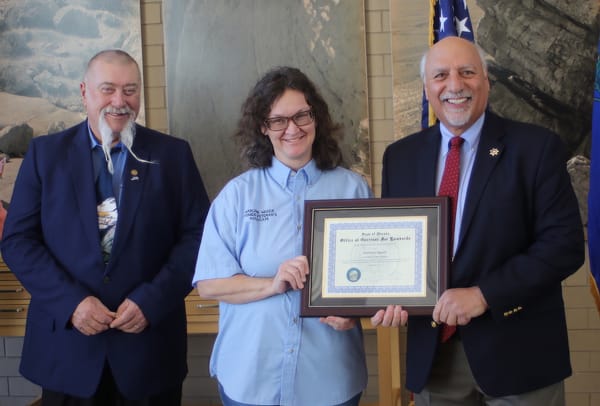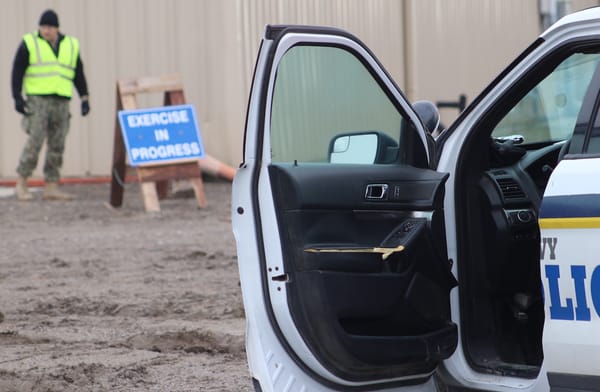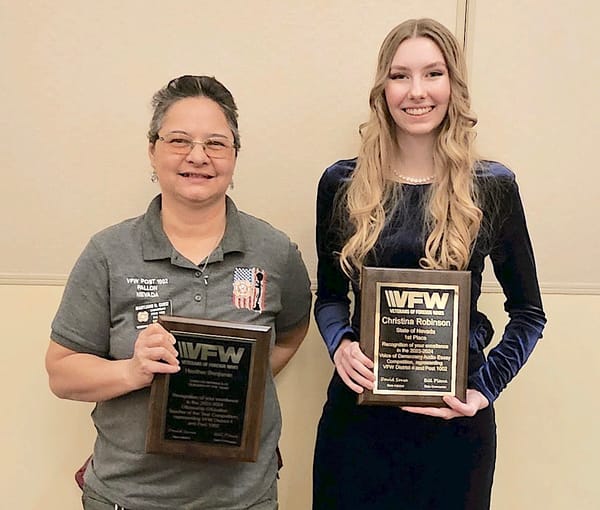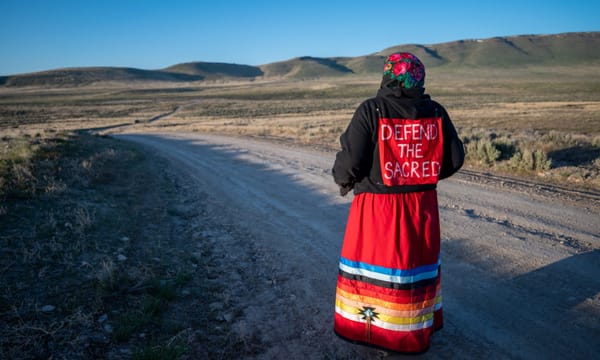‘Sitting back waiting to die’ | Nevada Current
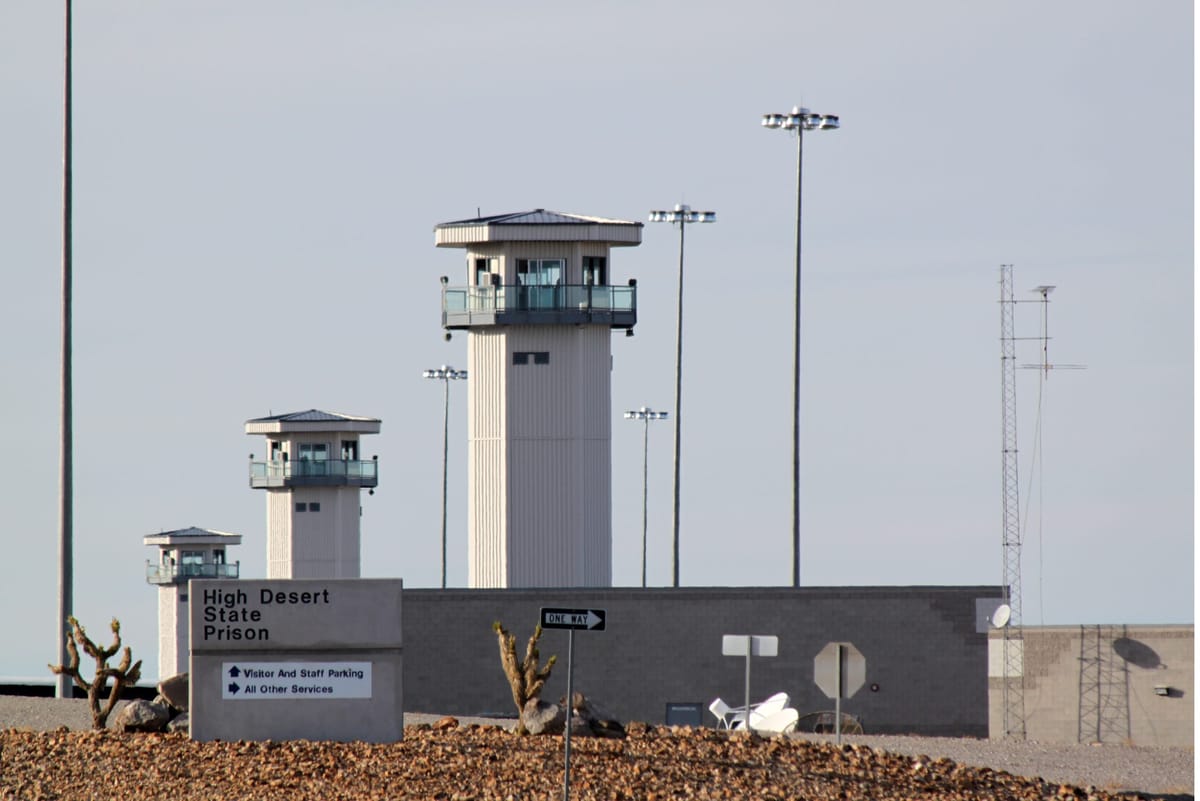
Rare use of compassionate release policies leaves medically vulnerable inmates locked up
By Michael Lyle, Nevada Current
This story was originally published by Nevada Current.
LAS VEGAS–Every time the phone rings, Keisha Gibbs cringes thinking it could be news that her younger brother Terry Clark, an inmate at Northern Nevada Correctional Center, has died from small-cell carcinoma, an aggressive form of lung cancer he was diagnosed with in 2020.
Clark, who is serving time for attempted burglary and second degree murder, is up for parole in 2022, but Gibbs is worried he won’t make it.
“My brother was incarcerated for a crime he committed 14 years ago,” she said. “He was a 20 year old kid. He and his friends made a mistake and he is paying for it. He owned up to it. He is just trying to do better. He doesn’t deserve to be tortured.”
When Valerie O’Neill video conferences with her son Ryan, an inmate at High Desert State Prison, she can see the toll his blood disorder, immune thrombocytopenic purpura, has taken on him.
In October, Ryan began a sentence for attempted forgery and possession of a stolen credit card and won’t be considered for parole until at least April.
“I don’t know if he’ll be alive when he comes out,” O’Neill said. “He has filled out (medical request forms) to see a doctor, ask for medicines and get blood tests like he is supposed to get to know what his platelet count is. He can’t even get the case worker to stop long enough to ask for a form. His doctor told me if he was to get Covid, his immune system would not fight it.”
Struggling to fight back tears as they talked, both women described the constant fear of having an ill loved one behind bars. But the fear is mixed with frustration and anger.
They say the Nevada Department of Corrections isn’t taking the health concerns of medically fragile inmates seriously, especially as Covid cases skyrocket among facilities.
Nevada has guidelines and statutes regarding compassionate release and residential confinement for the medically vulnerable. Both Gibbs and O’Neill questioned why the department isn’t acting on those policies.
“I understand my brother broke the law and did wrong,” Gibbs said. “But I also understand he wasn’t sentenced to death. He is telling me that he feels he is just sitting back waiting to die.”
‘Unpredictably ordered series of obstacles’
Nevada law details eligibility requirements for residential confinement or “other appropriate supervisions of offenders who are physically incapacitated or in ill health.”
If the inmate is pysically incapacitated or in ill health to such a degree that the person doesn’t present a threat to public safety or health, or is expected to die within 12 months, they could be eligible.
Two physicians, one who is not employed by the department, must verify the health condition of the inmate.
The Nevada Department of Corrections said three people applied for compassionate release in 2020 but two didn’t have the physician’s letter needed for release to be granted. The third inmate was granted parole before compassionate release had a chance to be approved.
The department said no person applied in 2019.
But Jodi Hocking, the founder of the prison advocacy group Return Strong, said those numbers don’t paint an accurate picture of who is actually eligible.
“They don’t apply because the process is so difficult and most of (the inmates) don’t even know that they can apply,” she said. “They make the process so difficult.”
She also pointed to the Department of Corrections’ Administrative Regulation 523, which states that medical staff are the ones tasked with determining if inmates are eligible for compassionate release.
“The medical director is supposed to initiate the process,” Hocking said. “Why hasn’t he initiated it?”
Medical recommendations and letters are presented to the director, who can approve or deny.
Hocking adding that also can be problematic.
“You’re supposed to have two letters documenting your illness,” she continued. “How do you get those if you’re in prison? The only way to get them is to have your family run them down. If your family doesn’t have a HIPAA form (allowing for the release of medical documents), they can’t do it.”
While most states have some form of compassionate release, a 2020 briefing the Prison Policy Initiative noted that “compassionate release is not a transparent and linear process, but an unpredictably ordered series of obstacles.”
The Nevada Department of Corrections wouldn’t say if it is required to report compassionate release data.
Calls for compassionate release for inmates intensified since the onset of the pandemic.
“Since last spring when the pandemic started, organizations have been fighting for compassionate release for people who are either medically fragile or terminally ill,” Hocking said.
At the end of October, 187 Nevada inmates had tested positive for the coronavirus. As of Thursday, the total was 5,413.
There have also been 45 reported deaths.
While state law and NDOC regulations provide a process for seeking compassionate release, criminal justice advocates and civil rights lawyers have pushed Gov. Steve Sisolak to look at releasing some inmates on his own initiative — those who are medically fragile as well as people sentenced for nonviolent infractions that are within six months of their sentence expiring.
“Beyond (NDOC) policy, the governor has the ability to sign an executive order for the people who have these types of illnesses,” Hocking said.
Sisolak’s office referred all questions on compassionate release to NDOC. The office declined to say if the governor would consider an Executive Order on compassionate release.
‘Deliberately indifferent’
Since being sentenced, Gibbs said her brother has worked to rehabilitate himself and turn his life around.
“He finished high school, started going to college classes,” she said. “He’s done work programs. Every program he is able to do, he’s done it. He started studying for his commercial driver’s license. He does whatever he can to keep himself busy and motivated.”
But everything changed in 2019 when Clark began to experience health issues.
“He said he was having trouble breathing” and requested medical attention, Gibbs said. Between June and December 2019, he was seen five times with chest pain. “They told him he had pneumonia and kept giving him medication and sending him back to his cell.”
Gibbs provided the Nevada Current with written notes Clark made in prison that detail his deterioration and medical treatments, along with official medical grievances he filed with the Nevada Department of Corrections over the last year.
In a Jan. 13 medical grievance, Clark wrote: “I’ve been fighting my pneumonia for many months now … I would like to please request a day trip to see a specialist, which was recommended by Pershing General Hospital on 1-1-2020. Thank you!”
On Feb. 10, he wrote: “The same medical condition exists and has persisted without adequate treatment. The medical department continues to be deliberately indifferent.”
March 4: “Also for the last week I have been dealing with extreme dizziness, which is a sign I’m not getting enough oxygen to my head.”
In other notes, Clark described his further health deterioration, including difficulty breathing and coughing up blood.
“He ended up passing out in his cell and one of the inmates had to drag him to the infirmary to go see a doctor,” Gibbs said. “They had to rush him to the hospital and had to do emergency surgery where they had to crack his chest open. They discovered that he had stage three cancer the whole time he was begging to go to the hospital.”
In April, Clark wrote about being hospitalized at Renown Hospital in Reno, where he finally learned it wasn’t pneumonia, as the Department of Corrections medical staff had concluded, but an aggressive cancer.
“He (the doctor) couldn’t believe I was already this far along in cancer but made it clear I needed treatment ASAP,” Clark wrote. “I still feel that I’m suffering without adequate treatment for an illness that should never have progressed this far without proper treatment.”
At some point in his treatment, Clark was transferred to Northern Nevada Correctional Center, which the department says provides long-term care similar to a convalescent center, as well as a hospice unit.
As of Thursday, there have been 1,047 confirmed Covid cases and 24 deaths at the facility.
Clark began chemotherapy in May and started taking medications to manage nausea, but could still feel his health declining further. He also continued filing medical grievances.
In an April 23 filing he wrote: “Due to receiving such a lack of proper medical treatment for such a long time my medical condition is now life threatening.”
Even as the medical staff told him the cancer treatment was working, Clark countered that his ribs weren’t healing and he was in excruciating pain.
In phone calls, Gibbs said he would complain he could barely walk or breathe and couldn’t sleep. It prompted her to call the medical staff at the facility seeking an explanation.
“I was told, ‘I don’t think he is as much pain as he says he is. His ribs are going to heal over time. I just think he wants more pain pills,” she said, describing an interaction with NDOC staff. He’s never returned a phone call since then.
When he finally was able to get another X-ray last fall, months after the initial diagnosis, Clark learned the cancer was not only still there, but advancing and causing even more pain.
“They told him he would need more chemo because the cancer had come back and it was worse,” she said. “It’s not the broken ribs. The tumors have spread and they are bulging out making the wounds not heal.”
In a Dec. 14 medical grievance, Clark wrote: “For 2 months now I have been writing medical explaining my ribs have been re-injured since recent surgery causing me a great deal of pain. Also last week I met with my cancer doctor who informed me my cancer has returned even stronger which is another source of my severe pain.”
Every phone call from Clark fills Gibbs with a sense of dread because she can hear her brother getting worse.
Despite filing numerous medical grievances and fighting cancer, Clark has never been approached by the medical director about compassionate release.
“He is getting worse every day,” she said. “Every day he is not getting his chemo treatment, which isn’t guaranteed to work, you’re taking away his chance to live.”
Valerie O’Neill has had similar issues fighting for her son Ryan. Since October, she said, he has struggled to get the form to file medical grievances and requests.
She continues to fax and mail his medical records hoping they will reach his prison. To this day, O’Neill doesn’t know what health information the Department of Corrections has received.
Ryan was diagnosed in May with the blood disorder that decreases the number of platelets in the blood, and had been hospitalized four times before being arrested in July.
“He got released from the hospital the day before so I know his platelet count was high — high for him,” she said.
He spent several weeks at Clark County Detention Center where he was treated before being transferred to High Desert Prison in October.
Since his transfer, there have been 737 reported Covid cases and nine deaths, two of which were staff, at the facility.
O’Neill initially thought her son would go before the parole board sooner, but learned it won’t be until April. If no action is taken, he could be incarcerated until 2022.
“I don’t know, at that time, what his platelet count is going to be,” she said. “I don’t know if he is going to be alive. NDOC is just not doing anything for him.”
In the meantime, she is hoping that eventually he will be able to talk to the staff about compassionate release.
“He is a human and made a mistake,” O’Neill said. “He owned up to it. Some people really think he doesn’t deserve anything. If they had a loved one in a similar situation, how would they feel?”
‘Plagued by many shortcomings’
Families Against Mandatory Minimums, a nonprofit that advocates for criminal justice reforms, released a 2018 report looking at compassionate release programs in every state.
Programs vary by name or description and can differ in its target populations (for example, age) and eligibility requirements. But the main conclusion is even if states have some version of the program, they are rarely used.
The New York Times and The Marshall Project found “from 2013 to 2017, the Bureau of Prisons approved only 6 percent of the 5,400 applications received.”
The Prison Policy Initiative said part of the issue is that compassionate release programs are “plagued by many shortcomings.”
Some issues include requiring medical professionals to attest that someone is within six to nine months of death — the group notes health providers are reluctant to give exact prognoses — or allowing prison staff and directors to overrule recommendations from medical professionals.
Other obstacles to release, as outlined by FAMM, include strict or vague eligibility requirements, categorical exclusions, unrealistic time frames and time-consuming review processes.
In Nevada, legislation regarding release of older inmates was passed in 2017 but vetoed by former Gov. Brian Sandoval who said the bill “has a noble goal, but it poses risks that are not justified by the purported benefits of changing the law.”
In 2019, Senate Bill 252 passed that allows inmates 65 and older to be released from prisons to residential confinement. Eligibility is limited to inmates who:
- haven’t committed a crime of violence against a child, a sex crime or vehicular homicide;
- served more than half their prison sentence.
Original language for the bill, introduced by Republican state Sen. Joe Hardy, was geared toward inmates 60 and older, but the age increased at the request of Democratic Senate Majority Leader Nicole Cannizzaro.
While any changes to the law would have to come through the Legislature, changes to the administrative regulation on the process of medical release could be addressed through the Board of Prison Commissioners, which Sisolak chairs.
Other members include Attorney General Aaron Ford and Secretary of State Barbara Cegavske.
A spokeswoman for Ford’s office declined to comment when asked if the board would consider reviewing the regulation in light of Covid rates soaring in prisons.
Cegavske’s office said they were unaware of any proposed revisions to the administrative regulation.
While Hocking and other advocacy groups urge lawmakers to take a look at policies that affect people who are incarcerated, the window to help medically vulnerable people currently incarcerated is closing.
If they don’t act soon, she said, people could die.
“One day could make the difference,” Hocking said.


